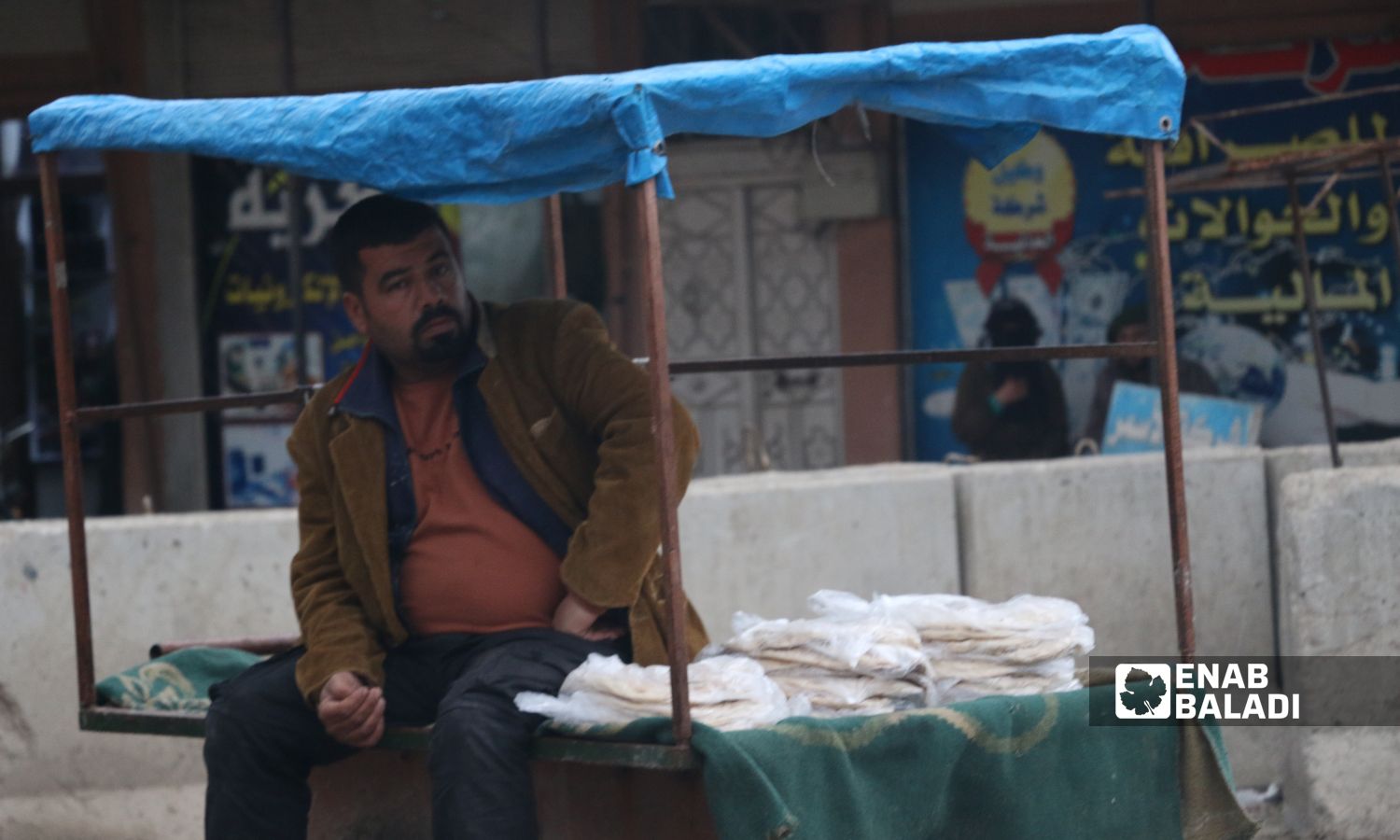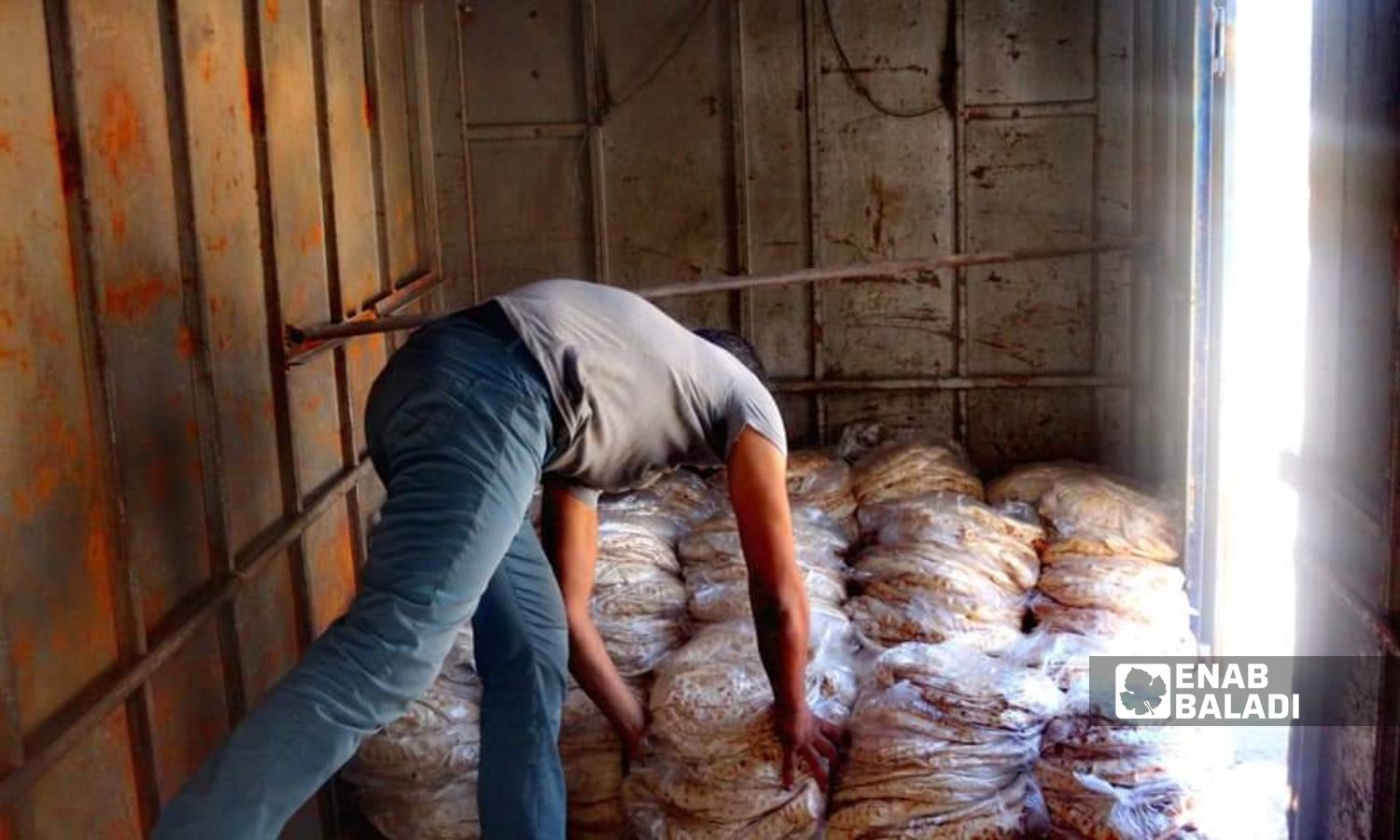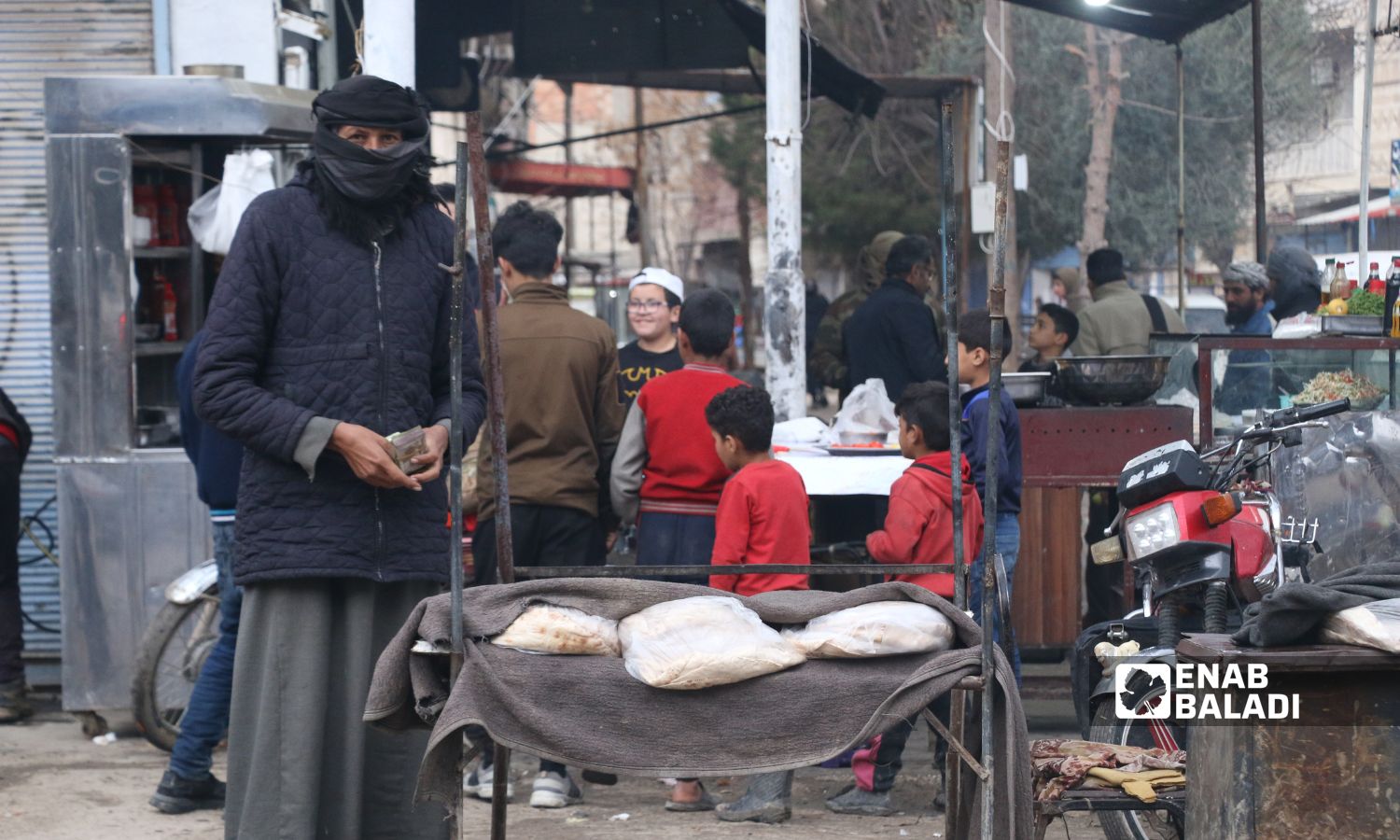



The city of Ras al-Ain in northwest al-Hasakah has been experiencing a severe bread crisis for days, due to a reduction in the amount of bread produced by the city’s only automated bakery.
This shortage has created a state of exploitation by merchants and street vendors, as they have raised the price of bread to 15,000 Syrian pounds per bundle (ten loaves weighing 1100 grams), while it continues to be sold in the bakery for about 1,500 Syrian pounds (the dollar is equal to 15,000 pounds).
This crisis is troubling the city’s population, which numbers 115,000 according to a previous statistic obtained by Enab Baladi, with the majority of residents depending on agriculture, and the daily wage of a worker does not exceed two US dollars (equivalent to 30,000 Syrian pounds).
The official spokesperson in the local council of Ras al-Ain, Ziad Maliki, explained that the decrease in bread quantities in Ras al-Ain is due to an inventory process by the Turkish Disaster and Emergency Management Authority (AFAD) of the flour quantities entering the city each year in February.
He told Enab Baladi that flour enters Ras al-Ain monthly for free and amounts to 600 tons, noting that the automated bakery has currently reduced the quantity of bread production to maintain a flour reserve of 40 tons.
Maliki added that the local council intends to purchase quantities of flour until the completion of inventory operations in Turkey and the resumption of sending flour to the region.
He mentioned that the council sells the 1100-gram bundle at a cost price of three Turkish liras to the residents, due to the free availability of flour, in addition to the council bearing monthly transportation costs valued at 15,000 US dollars, to which are added the operational costs of the bakery, including workers’ wages, fuel, and maintenance.
He pointed out that the normal production of the bakery on regular days reaches 30,000 bundles daily, covering the city and the countryside fully, but at the present time, the production has declined to about 15,000 bundles daily due to the shortage of flour.

Bread shortage burdens the residents of Ras al-Ain in northwest al-Hasakah – February 20, 2024 (Enab Baladi)
Some residents complained to Enab Baladi about the scarcity of bread and the difficulty in obtaining it, buying the commodity from street vendors and sellers in the city at inflated prices.
Muhyiddin Sharfa, a resident of Ras al-Ain and father of six children, told Enab Baladi that bread was available at the beginning of this month and was delivered to them daily through representatives of the automated bakery. However, getting it has become difficult and costly this week.
He added that his family needs three bundles of bread daily; he used to buy each for three Turkish liras (1,500 Syrian pounds), while it is sold today in the black market at prices up to 15,000 Syrian pounds.
Sharfa called for the necessity of providing bread in the coming days because it is a staple food item that cannot be rationed or dispensed with.

Bread shortage burdens the residents of Ras al-Ain in northwest al-Hasakah – February 20, 2024 (Enab Baladi)
As the production of bread quantities at the automated bakery has declined, residents of the city find themselves compelled to think of alternative solutions.
Some resort to preparing bread in a primitive way at home, a choice facing obstacles due to the difficulty of securing the necessary raw materials, due to their absence from local markets.
Ola al-Ghamri, a lady from Ras al-Ain, said that she does not receive her full share of bread from the distributor, noting that she was forced to buy flour from commercial shops at high prices reaching 200 Turkish liras per bag, weighing three kilograms.
Al-Ghamri prepares bread at home using primitive means due to the lack of firewood, adding that she does not have the capacity to buy bread from the black market, where the price of a bundle ranges between 10,000 and 15,000 Syrian pounds.

Bread shortage burdens the residents of Ras al-Ain in northwest al-Hasakah – February 20, 2024 (Enab Baladi)
The situation in the countryside is no different from the city, as rural residents also suffer from the lack of bread, and not receiving their rightful shares, forcing them to rely on themselves by baking and preparing it at home.
Eyad Assaf, a bread sales representative in the countryside of Ras al-Ain, said that he used to receive 750 bundles of bread daily to distribute across several villages, but this week, he has not received any bread quantity.
He explained that the villagers come to him daily looking for bread, but without any luck, noting that the situation of the villages is considered better than that of the city, as the rural residents have the raw materials needed to prepare bread at home.
Assaf mentioned that a large part of the rural inhabitants did not store flour last year, due to the low price of wheat to around 180 dollars per ton, and selling it to pay off their debts.
Ras al-Ain and Tel Abyad lie adjacent to the Turkish border and are controlled by the Turkish-supported Syrian National Army (SNA), while they are surrounded by combat fronts with the Syrian Democratic Forces (SDF), with the Turkish border being their only outlet to the outside world.
In addition to livestock breeding, agriculture is one of the fundamental professions that the majority of residents in the Ras al-Ain area and the north and northeast regions of Syria engage in, and it constitutes a main source of income in these areas.

Bread shortage burdens the residents of Ras al-Ain in northwest al-Hasakah – February 20, 2024 (Enab Baladi)
if you think the article contain wrong information or you have additional details Send Correction